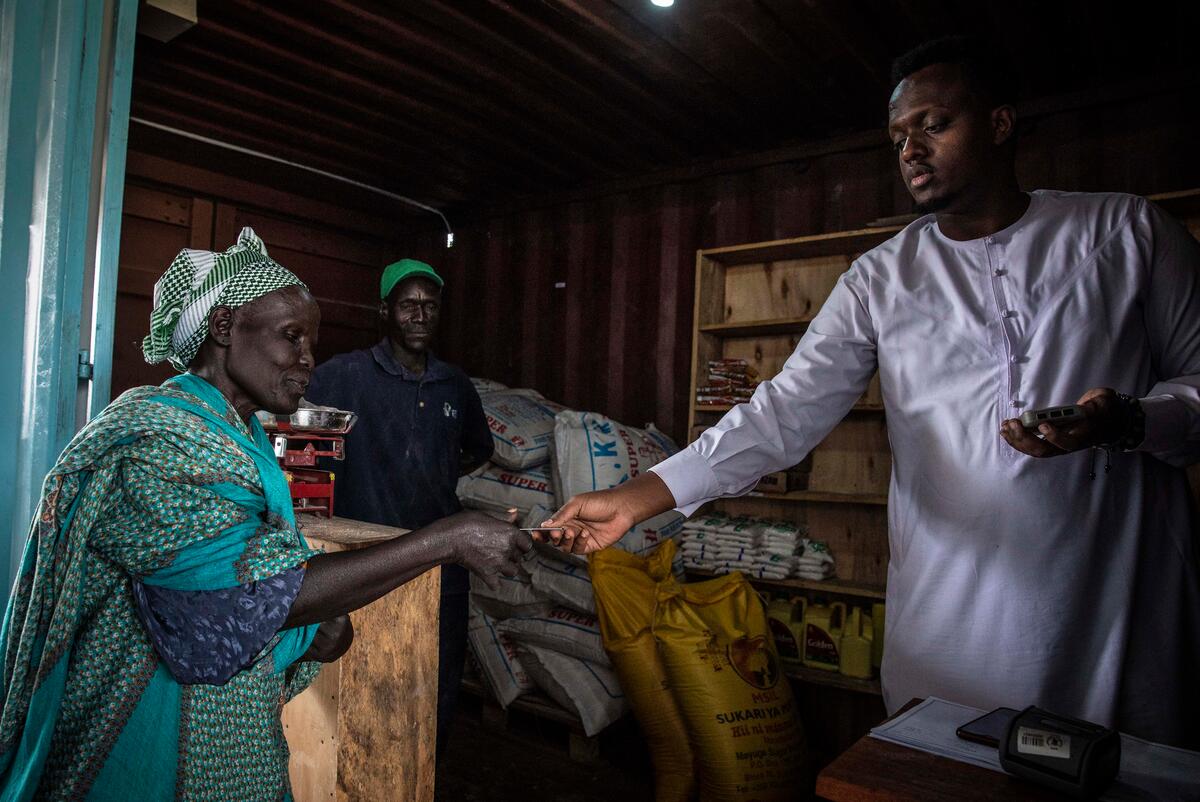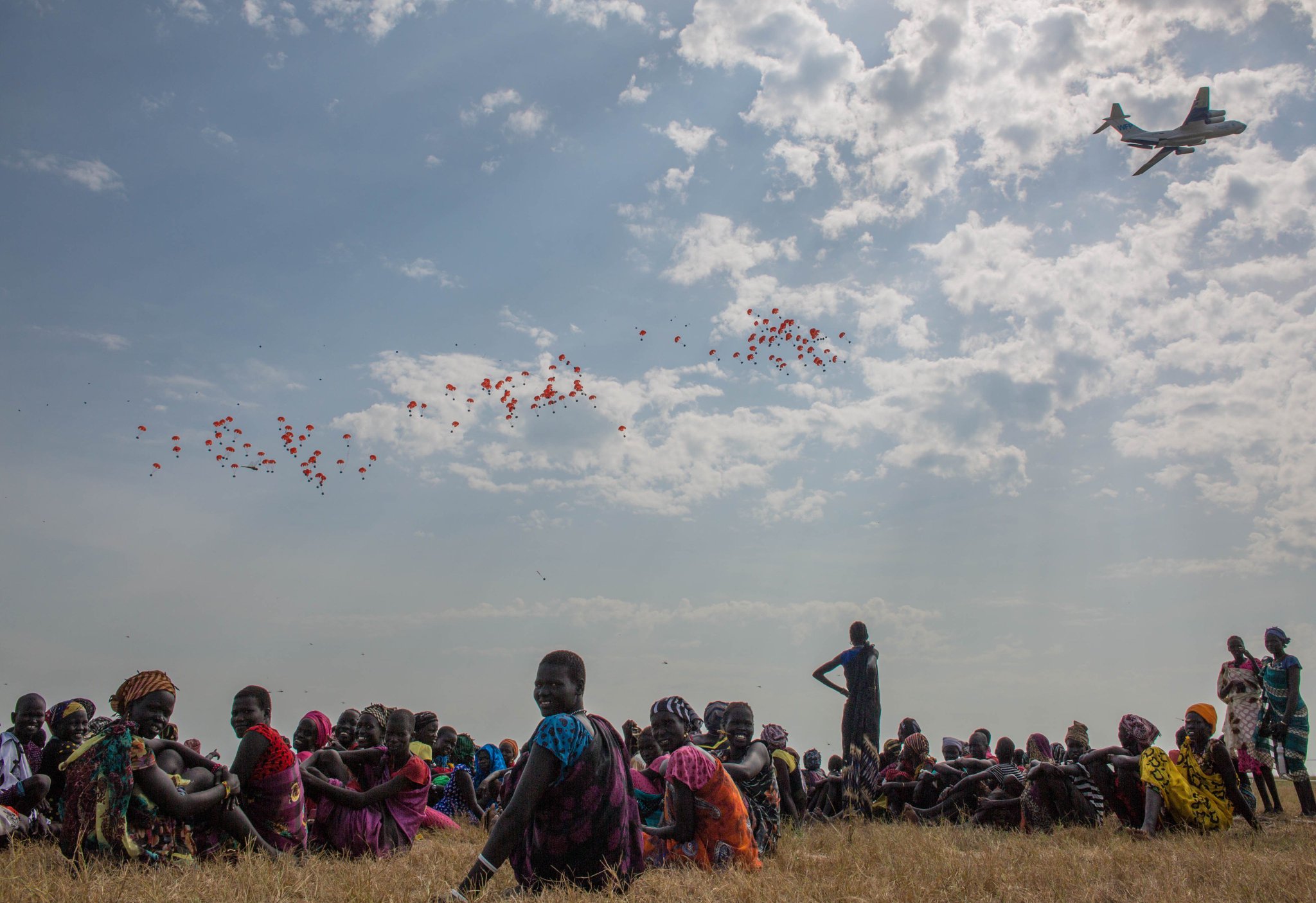
South Sudan
Hunger and Climate Crisis
South Sudan already faced a massive humanitarian crisis driven by relentless climate extremes. Now, the conflict in neighboring Sudan is driving up the cost of food and pushing more people into hunger.
Families need food now.
Record Levels of Hunger
A hunger emergency is looming on the border between South Sudan and Sudan. More than 830,000 people have fled the conflict in Sudan to find safety in South Sudan. These families arrive in a country already grappling with years of flooding, drought, increasing violence and surging food and fuel prices.
people affected by floods
people are facing extreme hunger
children are malnourished
what’s driving hunger in South sudan?

Conflict
The violent conflict in Sudan is fueling a massive displacement crisis, including an influx of more than 830,000 refugees and returnees into South Sudan. WFP has supported more than 620,000 of them with fortified biscuits, food, cash and nutrition support.
LEARN MORE ABOUT THE CRISIS IN SUDAN AND WFP’S RESPONSE

Climate Extremes
Since early 2021, South Sudan has experienced severe flooding. Large swathes of land are permanently submerged. In other parts of the country, drought, irregular rainfall and prolonged dry spells are driving hunger. These climate shocks have made it impossible for many farmers to grow enough food.

Rising Prices
The conflict in Sudan has also contributed to hyperinflation and rapid currency depreciation in South Sudan. On average, the price of a basket of basic food items in South Sudan has increased by almost 370% since the onset of the war in Sudan.
Photo: WFP/Eulalia Berlanga/2023


WFP’s Crisis Response in South Sudan
The U.N. World Food Programme has been providing lifesaving support to millions of people in virtually all areas of the country that are accessible since independence in 2011 (and as part of Sudan since 1963).

Food assistance is essential to avoid a humanitarian catastrophe in South Sudan. In 2023, WFP reached 3.6 million crisis-affected people,
including returnees and refugees, with food and cash-based transfers.


The right nutrition at the right time can save lives. Last year, WFP provided 1.5 million children under 5 and pregnant and breastfeeding women with specialized nutritious foods to treat and prevent acute malnutrition.


WFP helps communities prepare for, cope with and recover from extreme weather events. Through resilience-building projects, WFP helps people build flood control dams and plant drought-tolerant crops.


Airdrops are a last resort for families trapped in dangerous, inaccessible areas. These places are cut off by conditions that make roads impassable. Airdrops allow WFP to reach these areas with emergency food.

Help Save Lives
People in countries like South Sudan are suffering from simultaneous droughts and floods. Your gift will deliver critical lifesaving food.
What’s Happening in South Sudan?
Read the latest stories and updates from South Sudan.





